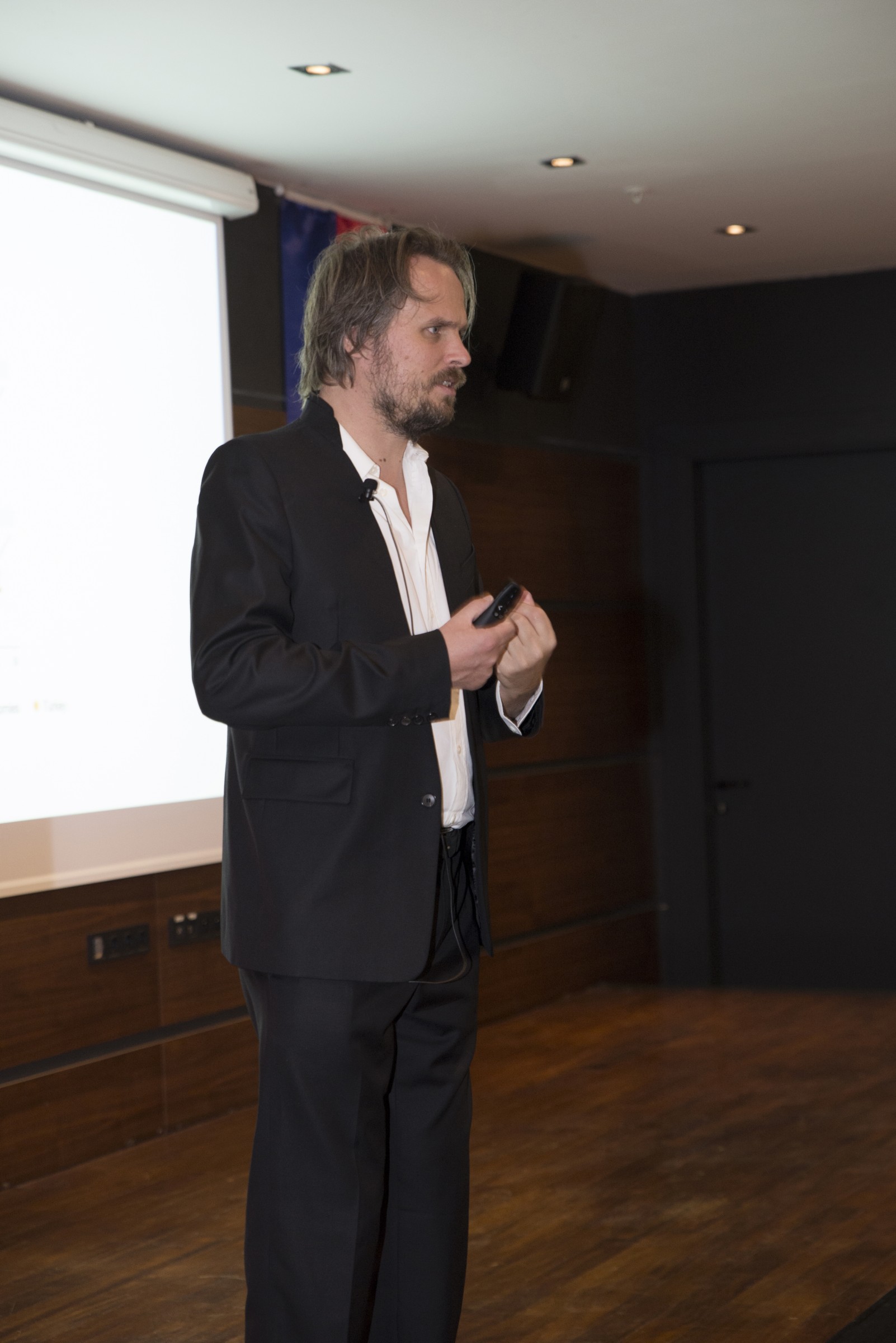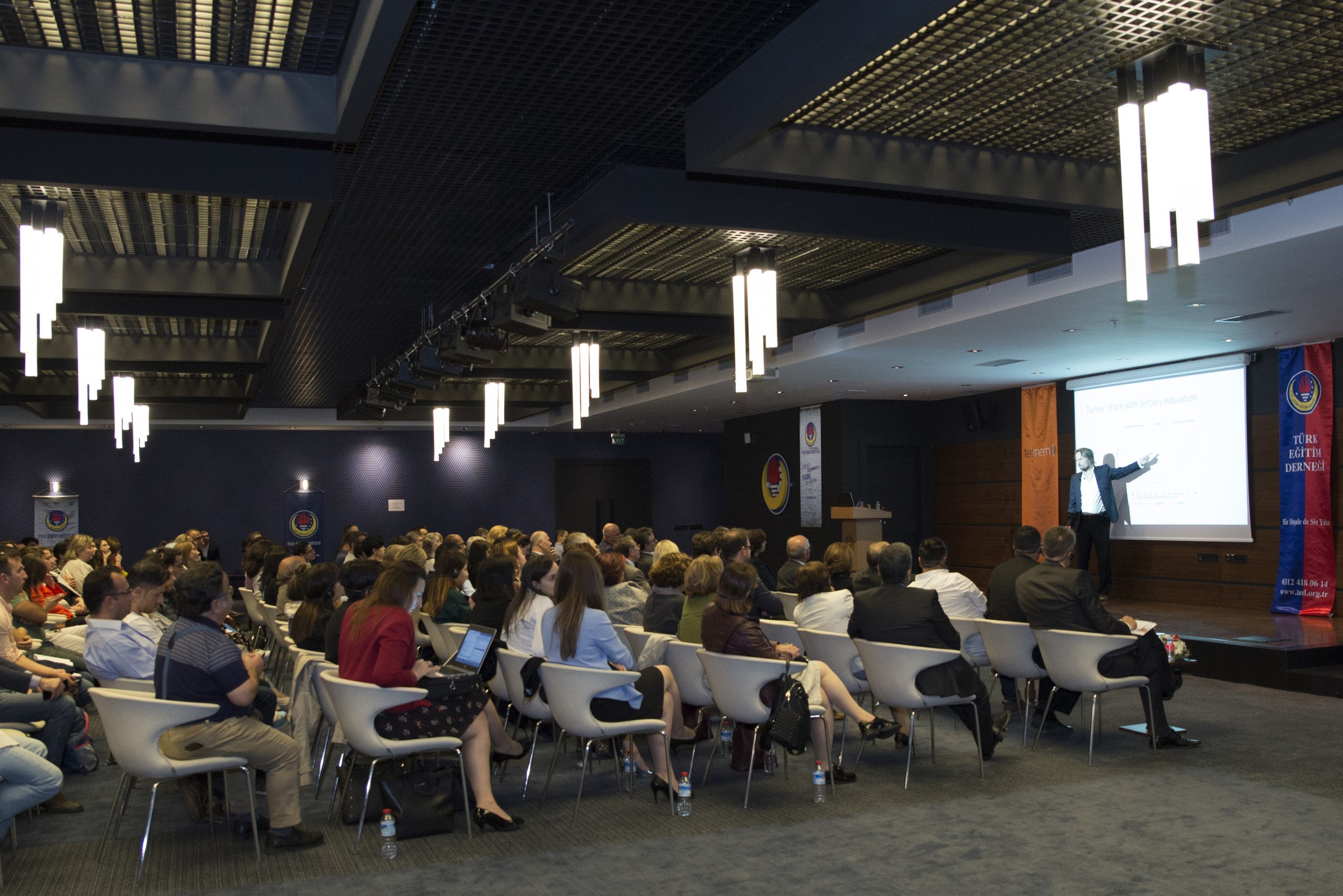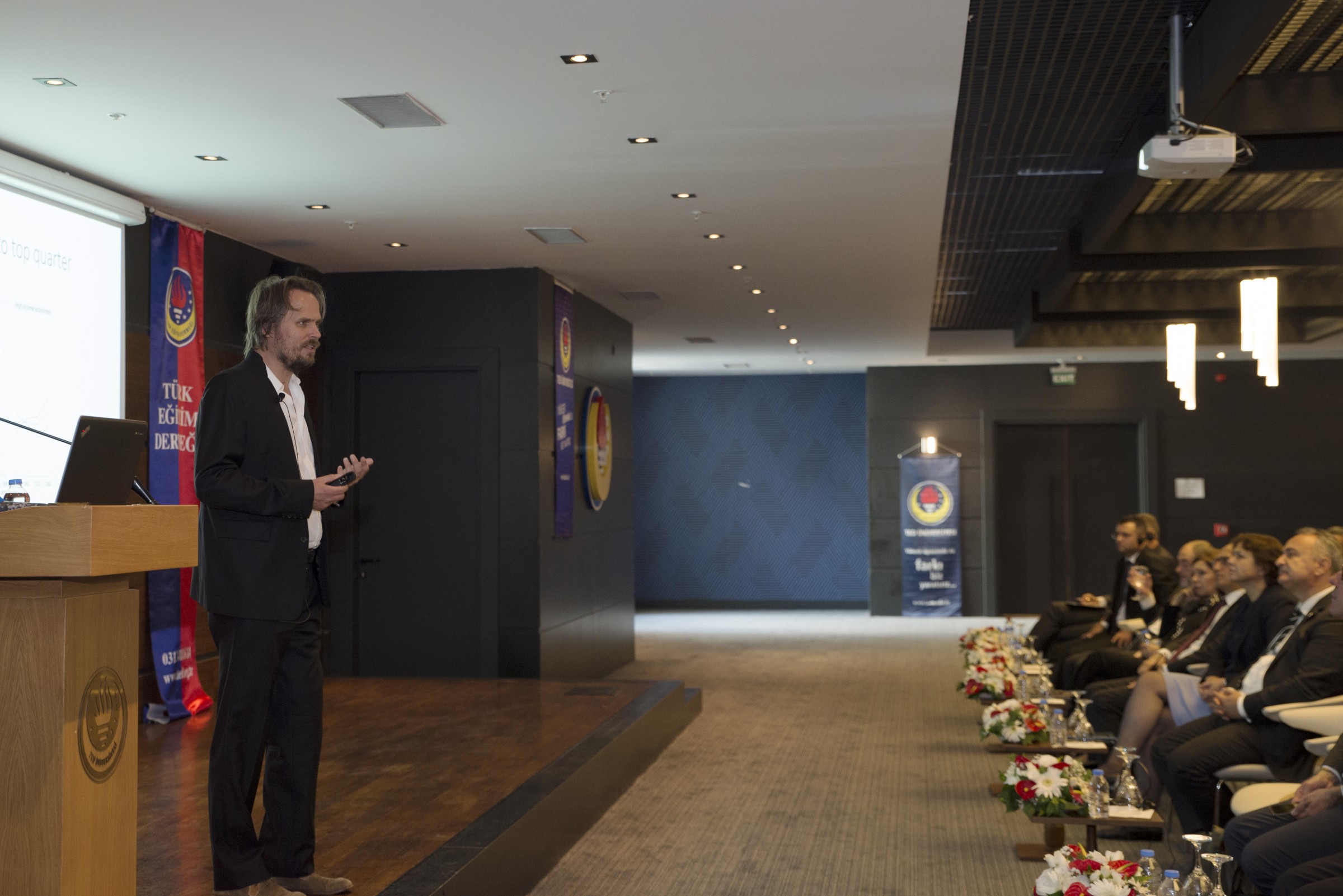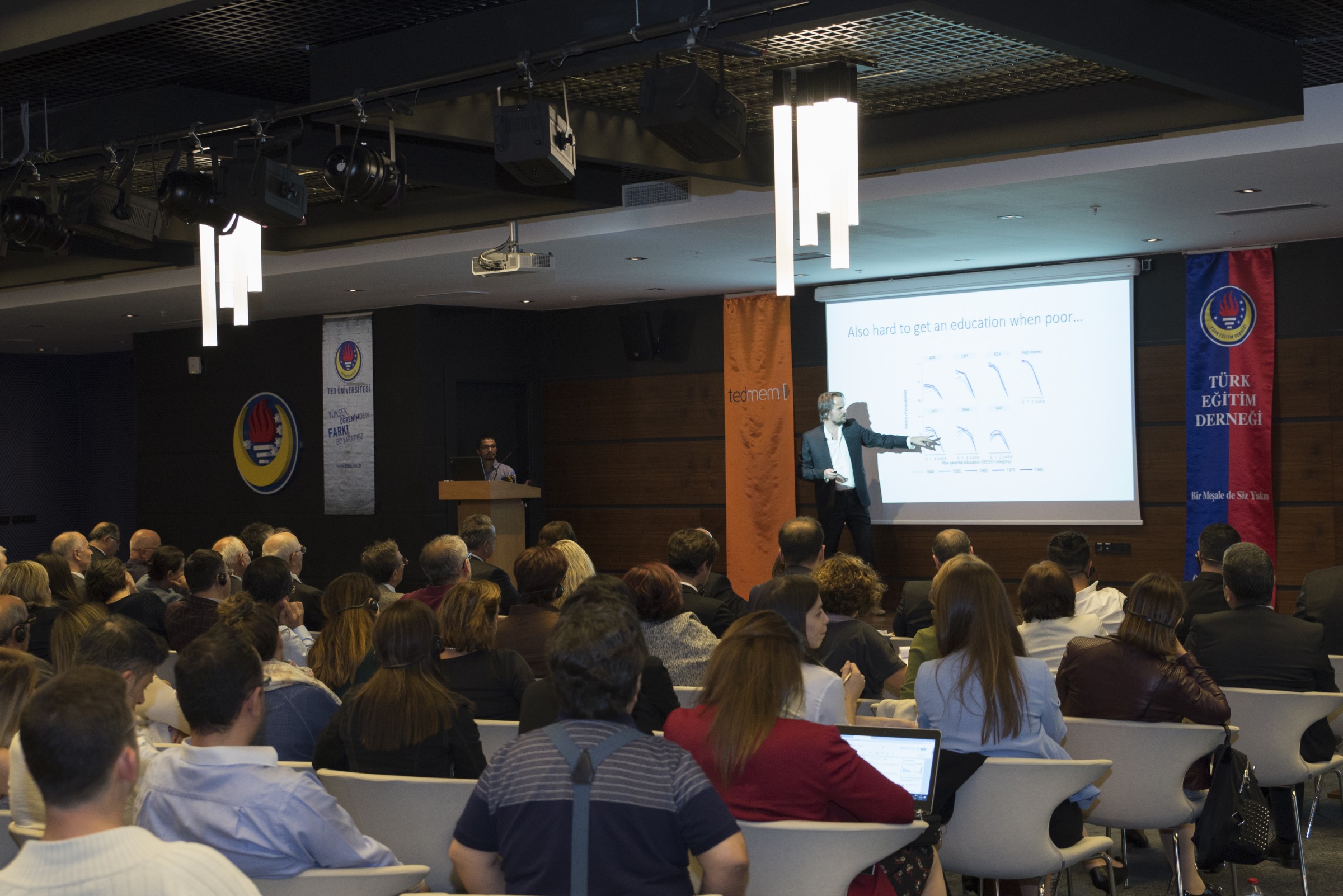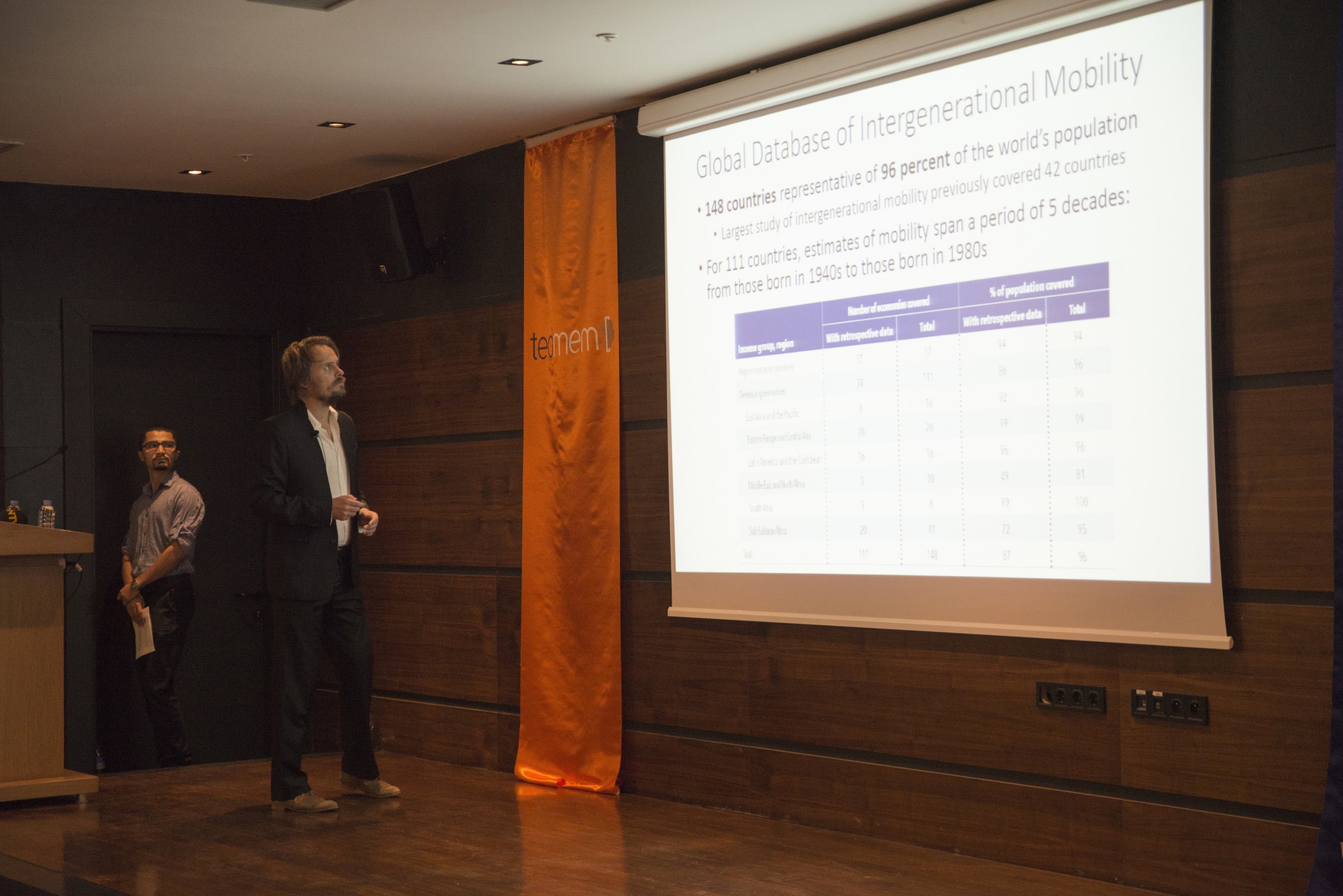"Fair Progress? Economic Mobility Across Generations Around the World” Discussed at TEDU
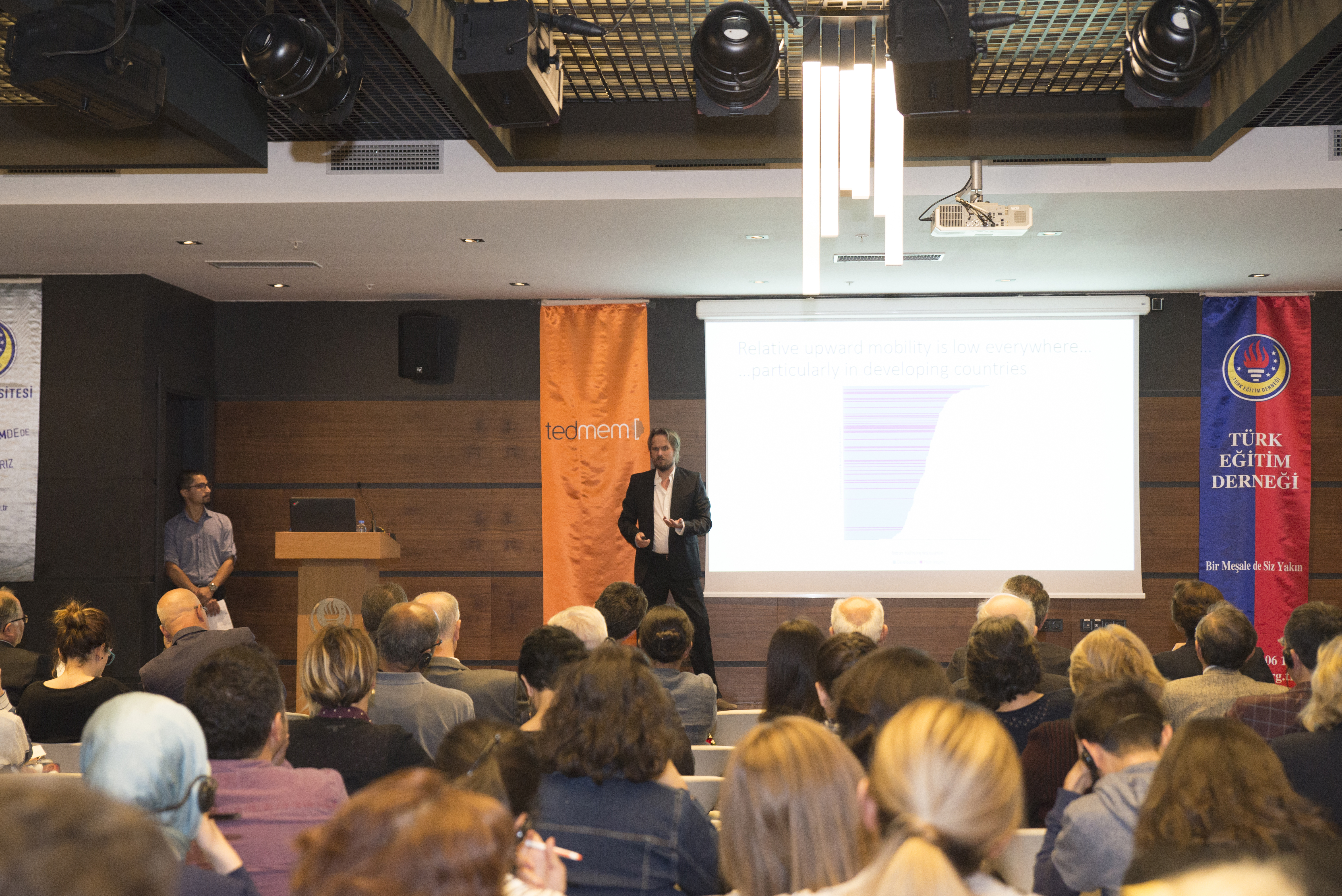
WORLD BANK IS ASKING: CAN EDUCATION PREVENT POVERTY FROM BEING FATE?
What is your chance to climb higher in the steps of socio-economic stairs if you were born to a low-income family? Starting off from this question, The World Bank analyzed the data on 148 countries including Turkey. The report titled "Fair Progress? Economic Mobility across Generations around the World” emphasized that poverty is inherited from one generation to other; however this can be prevented with education and public policies.
While the World is discussing relationship between economy and education, World Bank’s report titled "Fair Progress? Economic Mobility across Generations around the World” covering analyses performed in 148 countries was introduced in Turkey. The report, which was addressed by TEDMEM, the think tank organization of Turkish Education Association, was presented at TED University by Roy Van der Weide, Economist in the Poverty and Inequality Research team within the Development Research Group of the World Bank.
The report includes analyses indicating that poverty was inherited from generation to generation in Turkey and developing countries. The three prerequisites listed in the report to prevent this situation are: “High quality pre-school education should be accessible toeveryone; education should have priority in public expenses and the target families should be those with lower income.” According to the analyses based upon these data, it is evident that education can prevent poverty from being fate.
EQUAL OPPORTUNITIES IN EDUCATION ALSO AFFECT THE ECONOMY
World Bank Economist Roy Van der Weide, who introduced the report at our university, centered his talk upon the fact that economic and educational activities increase in correlation with the development level of a country and he underlined that no positive advance can be achieved in economy if investments were not made to ensure equal opportunity in education.
Weide stated that the education level of families increases, and so does the level of their children in Turkey; while this is something to be applauded, he added that the real problem is the average education level of families’ being relatively lower than the world standards. He also suggested that politicians in Turkey should invest in the early childhood education: “It is necessary to concentrate on the preliminary stages of the life cycle. If investments were not made for the early ages, costs are inevitably higher for the later stages. For example, it is very essential to make investments to mother and child health since the economic mobility is considerably lower in those places where growth retardation is at a higher rate.”
POVERTY IS TRANSFERRED IN TURKEY
TEDMEM Director Prof. Dr. Emin Karip, who interpreted the analyses on transitions from low-income group to high-income group, stated that Turkey ranks 120th among 148 countries. Karip made the following comments concerning the findings of the report on Turkey: “As years pass, Turkey’s level of welfare is gradually increasing. However, transition probability from 50% lower group to the 25% upper group is too small. That is, poverty is prevailing indeed. Well, how can such a transition be possible? Equality in education is a priority issue. For example, transition from the lower group to the higher is less probable for women. For example, this transition was observed as 11% for men and 21% for women in 1980s. One important point here, when determining a policy, equal opportunity should be observed for both men and women in accessing education. Another point, all schools should offer fair and high quality education. In order to provide that, additional public investments should be made. Unfortunately poverty is transferred from parents to children in Turkey. If Turkey wants to achieve a success story, it essentially needs to begin with schools. All children should receive high quality education in public schools regardless of financial conditions of their parents. Teachers have a great responsibility here; they should observe children carefully and increase their motivation involving their parents to the course of education and give them a basic guideline. When you provide children with high quality education and additional education services supporting public policies, transition to a higher-income group will be much easier free from current financial conditions. If we fail to do this, if we create a need for education outside the school such as courses, private lessons, study hours, thus we increase the expenditure of education for the families, we cause the difference between income groups to grow even higher.”
EDUCATION, THE ONLY WAY OUT
Selçuk Pehlivanoğlu, President of Turkish Education Assembly, who delivered a speech at TEDMEM Rostrum said that “As we all know, the only way for climbing the social and economic ladder for those from low-income families is the education.” Asking why this question on how fair was the economic mobility between generations in the world has been discussed so intensively, Pehlivanoğlu stated that “Economic mobility between generations is one of the key aspects for the improvement of humanity. Parents would like to see their children acquire higher life standards. In connection with this, many individuals watch for opportunity to climb higher levels of the economic ladder.”
Basic findings of the Report;
- Economic mobility in developing countries is lower than countries in the higher income group.
- Vertical economic mobility rate is higher for women in developing countries than for men.
- Transition rate from lower 50% to upper 25% in Turkey by decades, approximately;
- For population born in 1940’s 4 percent
- For population born in 1950’s 15 percent
- For population born in 1960’s 14 percent
- For population born in 1970’s 18 percent
- For population born in 1980’s 17 percent
- In developing countries, the difference between men and women who were born in 1950’s, decreases gradually up to 1980’s. But it continuously increased to the detriment of women.
- Transition rate from lower 50% to upper 25% in Turkey by decades, approximately
- Population born in the 1950’s 13% for women 18% for men
- Population born in the 1960’s 11% for women 19% for men
- Population born in the 1970’s 14% for women 24% for men
- Population born in the 1980’s 11% for women 21% for men
- The rate of staying in the lower group for individuals whose parents are in the lower group in Turkey is quite high.
- Economic mobility of children whose parents have higher education levels is double the rate of those from parents of low education levels, reasons for this are;
- Parents can spend more for the education of their children,
- Parents with higher education level may have a greater influence on their children.
- Economic mobility can be increased by the following public policies:
- More public investment and greater share of budget for the education of children,
- Providing support for the children of families with economic disadvantages,
- Improvement of early childhood education.
